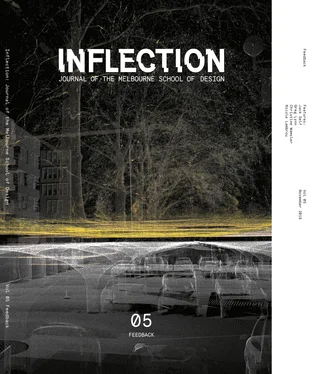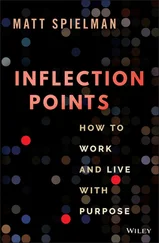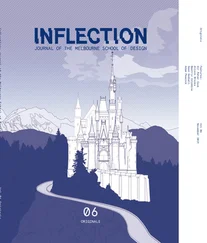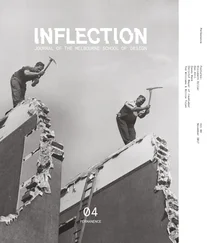Do you think that the conditions exist at present for the architect to assume that role? It seems to us that the building industry is increasingly focussed on producing private wealth rather than proposing alternative models.
We can’t be nostalgic for the historical relationship between the state and private enterprise when it came to the built environment that existed during the 1950s, ’60s and early ’70s. That type of relationship is not going to come back. However, when we think about the economic situation we’ve arrived at today, there’s an assumption that through deregulation the state has passed off its responsibilities onto the private sector, who have not taken up any social ambition with that. They’ve just pursued private wealth gains. But the state was massively involved in that. There is no such thing as deregulation. It’s just regulation for a different purpose.
The generation of people who were in their early adulthood during the boom and who experienced the 2008 crash have been quite rapidly and radically politicised when it comes to questions of wealth equality and social equality.
Society generally is thinking a lot more about gender, race, as well as discussions around environmentalism that were absent 15 years ago. My instinct is that the demographics in most Western societies are generally positive, and that the recent kick to the right is a temporary one. Whether or not that results in a kind of permanent shift to a new relationship between state and private enterprise, I couldn’t say. In a way in doesn’t matter, because there will never be the perfect moment to decide to engage in these types of activities.
A lot of your work is focussed around the act of critique. In particular, you seem to position your architectural work at odds with the status quo. Do you think the standing of criticism is being harmed by the expectation that critics should simply be telling people whether something is worth their time?
Whether I’m writing, designing a piece of furniture or working on a housing project, hypothetical or not, I always try to pursue the methodology of the architect, which is that the essence of ‘architecture’ is the project, and that means proposition. It’s fine to be critical, but criticality in itself is not enough to form good critique.
I think it’s important to understand why I do those hypothetical projects. For example, each of the five projects in the Derivative Architecture series has been moving towards a higher level of resolution in terms of how it deals with the pragmatics of planning systems and the reality of finance. Each of those projects is trying to rapidly test out a different type of financial model in order to see what the consequences of that would be for the built form. For me personally they’re very useful, and they represent a continuation of my education.
But I don’t think they could be built, and so there is a question about what the value of the ‘building-as-criticism’ or the ‘building-as-metaphor’ is. Because architects for the most part are not writers, we should not create a hierarchy between whether we write or whether we draw. These projects are very much intended as arguments. That’s different from an actual built work. A built work cannot be a metaphor.
To what extent should architects and designers be held responsible for the on-site conditions and the treatment of labour on their projects?
I know this is going to be a very banal response, but in part that has to do with the contract structure. In a design and construct contract, the designer sits underneath the client and is then effectively cut off at the moment the building goes into construction. By having a contract structure of this kind the architect has zero control over and zero relationship with the realisation of the building. At that point, it’s not a question of whether or not the architect can influence the labour conditions on-site, but whether or not the architect should take on the job in the first place.
Peter Eisenman has said that once you start judging a client you can’t do any work as an architect, because there is no such thing as clean money and clean conditions. That’s true to an extent, but I also have faith in the architectural community, who tend to be an extremely ethically and socially concerned group. I really do believe that architects have good intentions on the whole. Each of us must find what we think the limit for where it is we’re prepared to work will be.
Imre Solt, Burj Dubai Construction Workers, 2007. Photograph. From Wikimedia Commons, released into public domain.
But it’s complex when the architect has a marginalised role in the construction process, so therefore I think the architect should always argue for greater involvement in the construction process and in on-site conditions. We can do that by making more sophisticated arguments about the value of design and the value of an architect’s involvement in a project. The way that design tends to be valued is purely in terms of how many more dollars-per-square meter it can add to the sale price. But there are many other arguments that can be made to justify the value of design.
This is also why I’m so concerned about architects having financial knowledge and being literate in economics and models of finance, because the more you can speak to a developer or you can speak to capital in its own language, the more likely it is you are to have greater control over the types of labour conditions you’ve mentioned. REAL Review is a perfect exemplar for the way in which I approach all architectural work. It’s not architecture, I should be clear. Buildings are architecture, urbanism maybe is architecture, but writing is really not architecture. Nonetheless, one can take an architectural methodology and apply it to other things, like publications.
You’ve avoided making content for REAL Review available online, which is standard practice for most contemporary publications.
REAL Review was designed backwards from an economic model that makes it viable. We have a moral imperative to critique injustices located within everyday conditions, and we’re trying to create a media platform which can express and explore those ideas, and which can support both well-known authors and unknown authors. The physical object of REAL Review is designed around a subscription-based model, which has no advertising. Therefore, we are completely reliant on people buying the physical magazine.
The physical aspect of the magazine has been optimised for the financial conditions in which it operates. For example, its dimensions and its weight are the maximum amount that’s able to be sent by first class letter in the UK. As a result, when it appears in bookstores, it is so obviously unlike any other magazine in that store, because all of the other magazine formats have been optimised around the idea of news-stand distribution. You can see that disjunct, which hints at the system that’s behind it. You would never publish your content online because it undermines any desire that people might have to buy your magazine.
Конец ознакомительного фрагмента.
Текст предоставлен ООО «ЛитРес».
Прочитайте эту книгу целиком, купив полную легальную версию на ЛитРес.
Безопасно оплатить книгу можно банковской картой Visa, MasterCard, Maestro, со счета мобильного телефона, с платежного терминала, в салоне МТС или Связной, через PayPal, WebMoney, Яндекс.Деньги, QIWI Кошелек, бонусными картами или другим удобным Вам способом.












